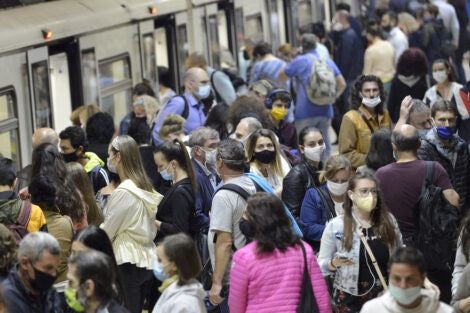Shifting buildings away from using dirty fossil fuels and toward using electricity for heating and cooling will be a crucial part of combatting climate change. But decarbonizing buildings would require a whopping increase in demand for renewable energy sources such as wind or solar.
Carrying a concealed weapon may not be the best way for women runners to protect themselves against harassment or assault, according to some experts.
President Joe Biden’s declaration that “the pandemic is over” is premature and harmful to the country’s COVID-19 response, according to Michelle Williams, Dean of Harvard T.H. Chan School of Public Health.
New food policies are urgently needed in the U.S., according to three nutrition experts from Harvard Chan School.
The public health response to the monkeypox outbreak has been marked by miscommunication in warning vulnerable groups about the virus and missteps in providing vaccine doses, according to DrPH candidate Antón Castellanos Usigli.
Amid the gloom and doom that typically shape news and discussions about climate change, a growing number of thought leaders are focusing instead on the positive efforts that are underway in the fight against global warming.
A new Lancet Commission report offers detailed policy recommendations aimed at reducing the dangers of COVID-19, forestalling the next pandemic, and enabling the world to proceed with goals of sustainable development, human rights, and peace.
Deep cleaning of airplanes is less prevalent now than it was during the beginning of the pandemic, but it won’t affect passengers’ health, according to experts.
Incidence of early onset cancers—including breast, colon, esophagus, kidney, liver, and pancreas—has been dramatically increasing around the world since 1990.
In a Perspective piece in the New England Journal of Medicine, two researchers argued that warning labels on alcohol containers should be updated to more clearly spell out alcohol’s potential harms.






